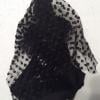Search the Community
Showing results for 'reactive hypo'.
Found 1,426 results
-


Reactive Hypoglycemia?
VSGAnn2014 replied to axlr8n's topic in General Weight Loss Surgery Discussions
I know only what I've read -- this condition afflicts some RNY patients (as I recall, it was in the double digit percent of patients) and also to some but fewer sleeved patients (single digit percent). I don't recall the numbers - sorry. As I recall, when it appears, it seems to be a major pain in the ass and is addressed to some extent by eating certain food combinations throughout the day -- not at the "grazing" level, but just strategic snacking. I've read several research studies on this condition. Here are a couple I remember finding earlier: http://www.ncbi.nlm.nih.gov/pmc/articles/PMC3190577/ http://spectrum.diabetesjournals.org/content/25/4/217.full That's all I got. P.S. Of course, this may NOT be reactive hypoglycemia, but something else, including some kind of bug. But I knowyou'll let an M.D. diagnose what's going on with you. Best wishes. -
So, last night I was tired and went to bed early. I woke up about 3am to use the restroom and passed out while standing at the toilet... Bashed my face into the throne and then passed out again a couple minutes later while washing my hands. I was still feeling off this morning and went to the ER. I had eaten a fiber one protein bar and Greek yogurt before deciding to go in. They ran a few tests and have me fluids... My blood sugar was only 60 even after eating. I've never passed out or had problems with low blood sugar before. I had steak and baked potato for dinner and a pear for a snack before heading off to bed. Could the sugar in the pear have sent me into a hypoglycemic crash? Anyone have any experience with this 8 months after RNY surgery? From what I've read this seems like a problem people run into later after surgery (18-24 months) and usually from eating sugary foods.
-
Quick update. I think it was caffeine. Had been increasing my coffee consumption without realizing it. I cut back to one a day and they decreased significantly. I also cut back on the amount of whey I was consuming at once to 30g or less. Thanks all for the reply. I had them checked and they are benign. I also have reactive hypoglycemia so this could also contribute. Sent from my iPad using the BariatricPal App
-
I haven't experienced this, but it might be caused by blood sugar levels changing too much after eating. Reactive hypoglycemia I think it's called. You can feel poorly physically but I'd imagine it would also make you feel bad emotionally as well if it's happening frequently. Might want to get your hormone and other blood levels checked to make sure there's not a physical/chemical reason for the sadness.
-
Thanks James...I am a Type 2 diabetic and know all about hypoglycemia. Used to have reactive hypoglycemia prior to turning full blown diabetic, so I know the signs. I actually did check my blood sugar this morning (I do every morning anyway). It was fine, so that wasn't it. I really do think it had to do with the Protein. I didn't think I hit my protein the day before, and most everything I read said protein and fluids are usual culprits. Thanks for replies. Feeling better now.
-
Some people experience reactive hypoglycemia after RNY gastric bypass surgery. This is irrespective of whether they had diabetes prior to surgery or not. Here is a link for symptoms. http://www.mayoclinic.org/diseases-conditions/diabetes/expert-answers/reactive-hypoglycemia/faq-20057778
-


Sleeve 4/27- preop diet concern
dunnadunna replied to dunnadunna's topic in PRE-Operation Weight Loss Surgery Q&A
They only gave me like 5 Protein shake options for preop and asked me to stick to those. Premier is reserved for post op for some reason. Of those preop shake options, two of them contain way too much actual sugar (I have reactive hypoglycemia) and caused me to have dumping syndrome. I have broth once a day at most because the shakes are pretty filling, and I don't so any sf Popsicles or Jello because I hate artificial sweetener and there's enough of that in the shakes as well. I haven't looked into the sodium in the shakes, though. I was thinking that once my Atkins supply runs out in two days, I'll make my own for the last 5 days and just use the muscle milk powder I already have. I can put lemon in my water. I'll try that. Maybe I just have an oversensitive system lol. Sent from my iPhone using the BariatricPal App Have you done yours? What did you use? Sent from my iPhone using the BariatricPal App -
I have a bmi of 44 right now. I'm getting the sleeve done, mainly because I have reactive hypoglycemia... I suffer dumping syndrome frequently if I'm not minding what I eat, anyway, and the doc worried that it would be too hard on me to get RnY. Sleeve it is. Sent from my iPhone using the BariatricPal App
-
@@sbdooly73 When I was Hyper thyroid last year, my surgeon told me that it was too dangerous for me to be operated on, due to the thyroid storm possibility. I worked with his team Endo ever since then (July 2015) He told me to come back once my thyroid stabilised. When I saw him in January 2016, I was severe Hypo then, and he wanted to wait longer, as hypo thyroid that is not stabilised can make the recovery from WLS lot harder. After 2 months of Thyroxine meds (Levo thyroxine), My labs were finally good, stable, Hallelujah !!! So, was finally operated on March 8th 2016 I can't see a reason why you may be denied surgery, unless your blood tests show big differences in your levels. Are you on thyroid medication? OK, just saw your reply re thyroid med. I wonder if your med needs to be adjusted. I still have my now 6 weekly blood tests to monitor my levels Good luck!
-
I have Graves disease. I had my thyroid destroyed via Radioactive tx, been Hypo thyroid since Dec 2015. On Thyroxine since January 2016. My surgery had to be postponed when I was hyper thyroid. Since March 2016 (WLS) I lost total of 9 kg ( approx. 20 pounds), Seems slow loss, however I did hit the stall couple of weeks ago. It is normal though,to have stalls, even though they can be frustrating ..... I am interested in thyroid disease weight loss, also. I had couple of mini binges recently, emotional/head cravings, chocolate made me ill, so had some ice-cream and extra Proteins late at night. I only started gentle exercises 2 weeks ago.
-


I need to do this, no matter what
Micoxv replied to Micoxv's topic in Tell Your Weight Loss Surgery Story
Good on you for walking out. She's a f**king idiot -- uninformed and passing along wrong information to people who need good info. Jeez! Yes. I also forgot to mention that she made me climb on a machine supposed to calculate my muscle mass, fat, water and bones weight. It seems that I have around 90 pounds of muscle. Then I was trying to explain that it is physically not possible for me to have the same Protein intake (the famous 60-70 grams a day) as for a woman of 160 pounds that would have 60 pounds of lean muscle. Any fitness instructor, website or magazine would also customized to protein intake in function of the activity and goals. Giving the same recommendation for everybody is just dumb. Anyway, I am looking for a different NUT, but not easy to find one that is experienced with VSG patients. I've seen another one that wanted to put me on a regular hypo caloric diet...of 1200 Cals a day when I am barely reaching 900 a day. I guess I need to contact other clinics / surgeons that are used to VSG to get names of the NUT they work with. I'd it does not work, I will stick to the program I found on the web (Ottawa hospital) which is very detailed. For anybody can recommend me a website or program, it would be great. -


How to break a long stall?
RickM replied to Packerfan61964's topic in POST-Operation Weight Loss Surgery Q&A
You've made great progress to lose that much in 8 months, but now you are in maintenance rather than a stall. To get things moving again you probably need to drop your intake by 500 calories or so per day to get things moving again, and probably somewhat more than that to take it all the way to your goal (your current stability/maintenance point will drop somewhat as you lose - takes less energy to move 180 lb around than 240). Fiddling around with carbs or salt can help break a stall that is created by Water retention issues and may help cravings if those are your particular weak points, but won't overcome a lack of caloric deficit. Revising to an RNY might help you as you will be starting from scratch again with the stomach restriction and the malabsorption does tend to give a bit of an extra kick to the weightloss, tho that is a temporary effect that lasts a year or two and then you are back to a similar metabolic state as you are in now with the sleeve. That along with its tendency toward reactive hypoglycemia leading to inter-meal hunger often drives regain in bypass patients. Overall, the bypass is very similar in performance to the sleeve, though that temporary malabsorptive kicker might be enough to get you over the hump and into a lower stability point, though you do have to consider the cost of doing so (not just financial, but the different drawbacks and limitations that one gets by moving to the different WLS.) So, look carefully at what your diet is now and where you can make adjustments before leaping to a revision. Also, if you decide that you are stuck enough to consider revision to complete the job, you should also have the DS on your radar as a more powerful tool than either the sleeve or the bypass. It has a somewhat different set of tradeoffs (though not markedly different than the bypass,) but it should be looked into before a revision rather than discovering later that you need a second revision (have seen a couple band - bypass - DS revisions go through our support group in the past couple years.) Good luck on getting things back on track, -
I went from Hyper thyroid to Hypo thyroid now. Last year I was diagnosed with Graves disease, was severely Hyper thyroid. Yes, my WLS surgeon and his endocrinologist picked up on it. My WLS had to be put on hold. Had Radioactive Iodine last August 2015, went Hypo thyroid December 2015. On Thyroxine since January 2016. At least it is only one tiny tablet per day, versus 16-20 I had to take daily, when I was Hyper thyroid! Both Hyper and Hypo suck! I am also concerned re: slower weight loss now. I am 24 days post op, so too early to see re my weight loss. I know, it is no good to compare myself with other people. I am glad that I can connect with other Thyroid members
-


Balance after RNY
James Marusek replied to snickysnack78's topic in POST-Operation Weight Loss Surgery Q&A
A search of the internet shows that others reported problems with balance after RNY surgery. There are probably several potential causes. For example a Vitamin B12 deficiency can cause dizziness. Some people experience reactive hypoglycemia after surgery and this can lead to dizziness. Also if you were diabetic prior to surgery and are still taking some blood sugar medicines, your dosage may need to be adjusted. Normally at the 1 year mark they have you undergo blood work. This allows them to fine tweak your Vitamins. Make sure when the time comes that you undergo this. Here is some discussion about this topic. http://www.bariatric-surgery-source.com/lightheaded-and-dizzy-after-gastric-bypass-surgery.html -
I have hypo thyroid as well. I'm 5 1/2 mos post op and have lost 92 pounds so far. 74 since being sleeved. Still have 50 to go. I was surprised at my 2 month blood work that my T4 was actually high and my Doc had to decrease my meds.
-
Do anyone in the morning after waking up experience low blood sugar? I wake up fine, then try to have something to eat, then a few minutes later I feel warm, sweating, feel like passing out. I read something about reactive hypoglycaemia, and before I had the sleeve I had low blood sugar moments. Now I been sleeved for almost 3 months now and its happened 3 times to me since. What do you do, anyone experience it?
-
I have a thyroid condition(hypo) and although I am struggling to get to goal, these last twenty pounds are so difficult, I'm still pretty pleased w/my progress (75#). I was also borderline diabetic & my dr.was going to refer me to a specialist but I begged her to wait, as I was preparing for the surgery. Thankfully, my numbers are now perfect, I never needed meds. You'll find many people lose successfully w/a thyroid condition.
-
This is going to be long, so I apologize. I'm just frustrated. I'm almost 2 years post VSG and have developed a significant case of GERD. It's so severe, and not controlled by medication, that my surgeon feels we can't just let it go. He has recommended that I undergo a procedure called stretta, which seems promising. We submitted for approval to my insurance company which promptly rejected the request (took them all of 3 business days) on the grounds that the procedure is experimental and there are well accepted alternatives, including pharmaceutical therapy and Nissen Fundoplication. Well, I'm not controlled by medication and the only combination that provides any relief Protonix/Dexilant was already rejected by the Company (they won't pay for the Dexilant and at almost $400 a month, the cost is almost prohibitive). Also, given that I no longer have a fundus, a fundoplication isn't available to me (nice going insurance co . . . way to review my medical records). My final option is conversion to bypass, which I really don't want to do. Other than my GERD, I LOVE my sleeve. It's allowed me to lose 130lbs and live an active lifestyle I've only dreamed about. I like having my pyloric valve and not having to worry about dumping, reactive hypoglycemia, etc. Also, the thought of another major surgery is not thrilling me. Anyway, my surgeon gave me the cost for both Stretta ($5,000) and conversion ($100,000). We decided to seek approval for conversion just to have it in our back pocket while we appeal the denial to my state Department of Insurance. Wouldn't you know it, they approved the $100,000 surgery. This is a prime example of what's wrong with the insurance industry. Why would you approve a $100,000 solution to a $5,000 problem???? Just frustrated beyond belief and knew this was a good place to get out my aggression . . . here and in my kickboxing class where I visualize the Ins. co's medical director's face as my target!
-


WLS and hypothyroid, PCOS meds
Daisee68 replied to csawesome's topic in Gastric Sleeve Surgery Forums
I have Graves Disease and had my thyroid ablated with radiation about 4 years ago so I am what they call post-RAI hypo (I have no thyroid function at all on my own.). My endocrinologist said I will need to have it checked fairly often in the beginning because the med will not absorb the same as before (I had RNY). So I actually had to increase my dose twice at first and then have started reducing it slightly. I am able to tell from the symptoms when something isn't right (I get restless leg syndrome and muscle cramps in addition to hair loss when I am hypo). But I was able able to tell when it was a little too much med as I lost weight and had it checked. At 9 1/2 months post-op, I am still taking more Synthroid than I was pre-op. I can tell you it has not hindered my weight loss (I am down 100 pounds since surgery last June and 130 pounds total). My endocrinologist requires me to wait 8 weeks in between dosage changes before testing. He says at my age (48), it can take that long for the body to adjust and as you get older that time increases. It sounds like you know your symptoms pretty well and know when to get tested but I would say to treat it a bit like after your pregnancy for the first year at least until you get it stabilized. I haven't had mine tested since November but I adjusted it slightly on my own about 2 months ago and feel pretty good. I'm having it tested again in a few weeks. As for metformin, I was taking it pre-op for Type 2 Diabetes and was taken off of it by my endocrinologist during pre-op liquid diet with close monitoring of my blood sugars and then taken completely off by my bariatric surgeon in the hospital day after surgery and haven't taken it since and my blood sugars are perfectly normal and my diabetes is in remission! I know you are taking yours for PCOS but I would think you will need to go off of it at least in the early stages of taking in such little food given it can lower your blood sugar. I would definitely discuss with the prescribing Dr as well as your bariatric surgeon. Best wishes on your journey!! Sent from my HTC One M9 using the BariatricPal App -


Any other sleevers have PMR (Polymyalsia Rhuematica?
iwillbeachitagain replied to iwillbeachitagain's topic in PRE-Operation Weight Loss Surgery Q&A
Hello Mdawncooper, I am sorry for my delayed response! So, I almost didn't go through with the surgery because I was afraid the PMR flare pain would be too much on top of the sleeve recovery pain... The surgeon convinced me to go through with it and said that a week post op I could resume prednisone if needed. Well here's the miracle: severe bi-lateral leg pain is gone! It could have just been the prednisone withdrawal symptoms rather than a flare; but I am so happy to be on the other side of this surgery and OFF prednisone! The Doc told me they give all patients a dose of steroids in the O.R., so that could have helped as well. The tell-tale symptoms are bi-lateral pain (rather than one side only). The only way diagnosis can be confirmed is to try Prednisone. If the pain resolves within three days or less after beginning prednisone, then you know you have PMR. My pain was in my legs and lower back ; rather than in the shoulders and neck where it is more common. The prednisone worked and I felt great (but also gained weight). I am am hopeful that my symptoms will not return and when I have my C-reactive Protein levels tested that they are lower. It is so nice to be certain that I will lose weight and feel better as a result! Down 34 lbs. since I began this process in late November! -


Gastric Bypass Surgery Ruined My Life
James Marusek replied to acuri08's topic in Tell Your Weight Loss Surgery Story
Several people who underwent RNY gastric bypass surgery developed hypoglycemia. It is somewhat common. It doesn't seem to make any difference if they were diabetic prior to surgery or not. This is a specific type of hypoglycemia called "reactive hypoglycemia". These are a few links to this condition. https://www.ridgeviewmedical.org/services/bariatric-weight-loss/enewsletter-articles/reactive-hypoglycemia-postgastric-bypass/ http://www.weightlosssurgery.ca/before-after-surgery/reactive-hypoglycaemia-post-gastric-bypass/ http://www.todaysdietitian.com/newarchives/060415p48tip.shtml Probably the main point is that there are steps you can take to significantly minimize the effect of this condition on your body. -
Fainting, tremors and weakness can be signs of low blood sugar. Several individuals that underwent RNY gastric bypass surgery experience a type of hypoglycemia called "Reactive Hypoglycemia". Here is one link about this condition but you can search for other links on the internet. https://www.ridgeviewmedical.org/services/bariatric-weight-loss/enewsletter-articles/reactive-hypoglycemia-postgastric-bypass/
-


"But you're so young" and other things that piss me off.
jennah pennycuff replied to LeslesLosingIt's topic in Gastric Sleeve Surgery Forums
I am 27 I had mine done Jan 26 and I have no regrets at all I have hypo thyroidism I went from 125 pounds to 225 in like 2 months BC it was so out of whack then I had two kids and was married my highest weight was 261 I am now at 240 in only three weeks!! I've never been so happy w it my parents were very supportive and I even got into a gym because the excess skin I do not want that at all my surgery went great he said it was textbook I had a little reaction to the sturry strips but no infection nothing I missed for for about a week and then I got OK w it ! Im so glad y'all divided to do it it is so life changing ! I feel 100% better already @lesleslosinit ur surgery was two days after mine -
It is common for some patients that undergo gastric bypass to experience a condition called Reactive Hypoglycemia. http://www.mayoclinic.org/diseases-conditions/diabetes/expert-answers/reactive-hypoglycemia/faq-20057778 So I do not know if this is common for gastric sleeve patients. But I would agree with GibbsGirl that this is the area that I would explore.
-


Your experience eating sugar after bypass
Djmohr replied to MozzaWehsha's topic in Gastric Bypass Surgery Forums
I can eat both sugar and fat in small amounts with no problem. I have not heard of passing out from too much sugar, I have had episodes of reactive hypoglycemia and that can cause some serious symptoms.










